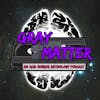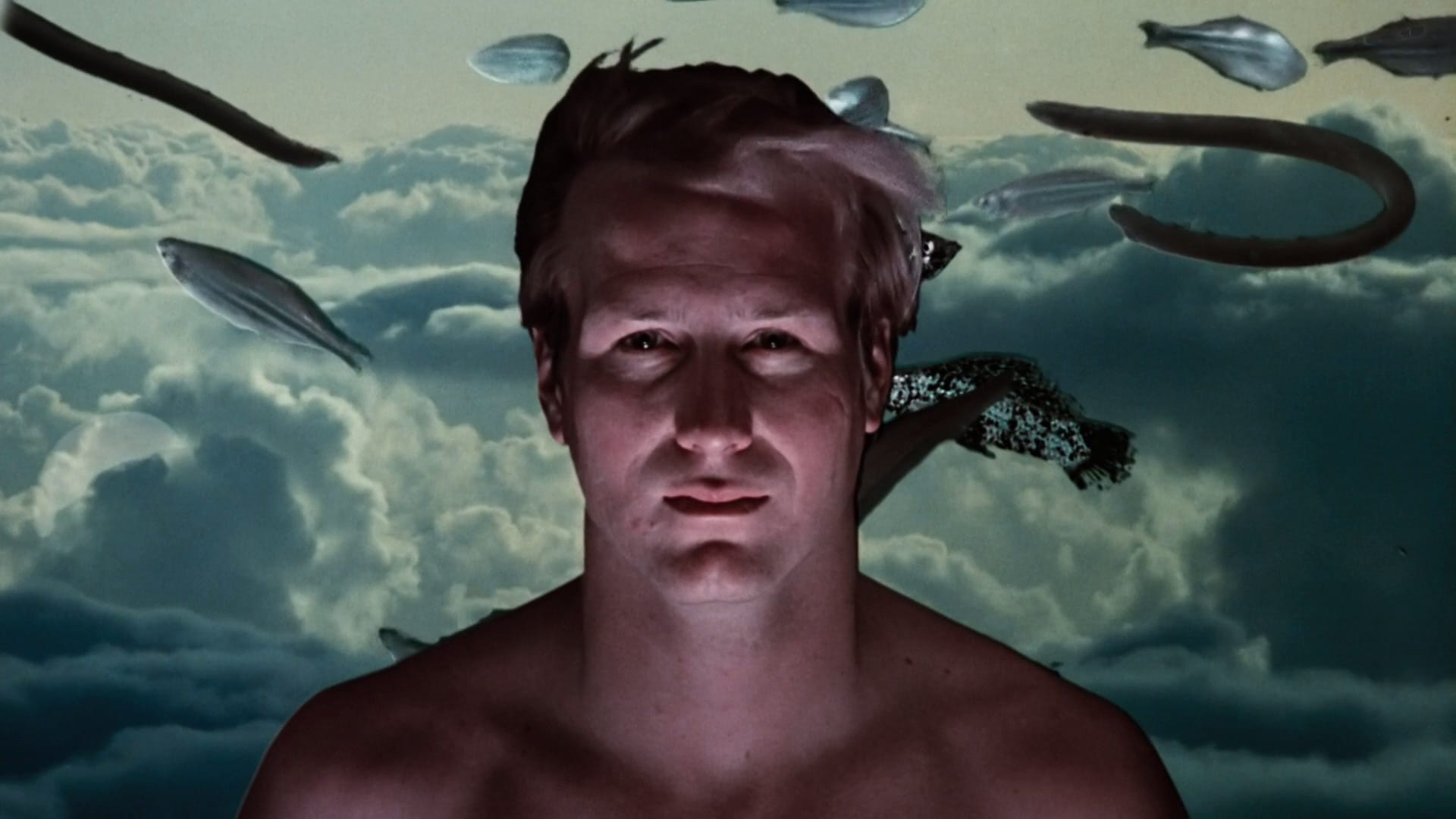I’ve asked the question; What is Acid Horror? But now I want to explore it, prod it like a surgeon with a knife - pick apart the bits and pieces that make it up. Join me for this retrospective series of short essays as we explore the media which inspired the term ‘Acid Horror,’ and more importantly… what the subgenre can teach us about ourselves.
_________________________________________________________
“Everybody’s looking for their true selves! We’re all trying to fulfill ourselves, understand ourselves, explore ourselves, expand ourselves! [...] Well, I think that that true self, that first self, is a real, quantifiable thing, tangible and incarnate… and I'm going to find the fucker.”
- Eddie Jessup.
“That was the fatal flaw in Tim Leary’s trip. He crashed around America selling ‘consciousness expansion’ without ever giving a thought to the grim meat-hook realities that were lying in wait for all the people that took him seriously. [...] a generation of permanent cripples, failed seekers, who never understood the essential old-mystic fallacy of the Acid Culture: the desperate assumption that somebody - or at least some force - is tending the light at the end of the tunnel.”
- Hunter S. Thompson
Who are we - Homo Sapiens? What defines us as a species? Our adaptability, our ruthlessness, our casual and callous disregard for all other measurable forms of life on the planet that birthed us? Or is it our endless search for fundamental meaning that makes us human, from cavemen worshiping the stars to lonely, stupid billionaires trying to own them?
Few films sum up the downfall of Acid Culture as thoughtfully and poignantly as Altered States (dir. Ken Russell, 1980). To capture the death of hope as the idealistic 60s crumbled into the harsh reality of the 70s through one man’s journey, without condemnation or judgment of those who believed they were leading their species to a higher form of consciousness, is a truly staggering accomplishment. For a movie with that subject matter to be as conventionally entertaining as Altered States is damn near impossible.
To say that it is a film about man’s search for truth is accurate, but almost staggeringly incomplete. It is a film packed with ideas - genetic memory, biomorphic trauma, the psychedelic intersection between mind and body, belief in a higher power and its connection to the death of a parent, nihilism versus existentialism in the face of an empty universe - but to try to pin the film’s meaning to a singular theme is as unhelpful as saying that it is the story of a guy who turns into a monkey and then an amoeba. While true, it fails to capture the overall picture.
Ultimately, however, the film’s central focus does seem to be on the existential struggle for meaning itself; namely, what does it mean to be human? Is there some buried capital-T ‘Truth’ to biological existence, woven deep inside our DNA strands and nestled snugly in the folds of our brains? Is God waiting for us at the bottom of the ribonucleic ladder? And was it mind or was it matter that made us who we are?
Inspired by Timothy Leary and the Acid Culture of the 1960s, writer and self-declared mystic Terrence McKenna once theorized that human consciousness began with the psilocybin mushroom. McKenna argued, without much in the way of conclusive evidence, that early man first developed art, culture, and religion through the integration of psychedelics into their diet, and that the sense of connection fostered by the mushroom’s effects promoted a sense of tribal unity and cooperation that enabled Homo Sapien to overtake the Neanderthal as the dominant hominid on the planet Earth. He proposed, ultimately, that mind gave birth to matter; that the expansion of consciousness is what enabled the material layers of society to stack and solidify, and that by further expanding our minds through the use of psilocybin we could usher in a beautiful new dawn for the human race.
Terrence McKenna, perhaps unsurprisingly, took “heroic doses” of the mushrooms himself.
Unlike McKenna, philosophers Karl Marx and Friedrich Engels believed that the state of the human mind was the result of material conditions, rather than the other way around. Working off of the foundations of Charles Darwin’s theory of natural selection, and rejecting the idealist Hegelian dialectic that was popular at the time, the two colleagues set out to create a scientific method that could examine the social, political, and economic structures of humanity in terms of the material struggles that created them. In the case of Homo Sapiens, they suggested that the struggle between a solitary life and a communal one was not decided by the mental state of those involved, but by which lifestyle resulted in material gains for its participants. While lone cavemen were killed by predators and competing hominids, tribes protected their weak and gave specialized tasks to the strong, enabling the community to grow their strengths and limit their weaknesses through cooperation.
At the beginning of Altered States, Eddie Jessup comes down firmly on the side of Terrence McKenna. When he was a child, he experienced ‘visions’ of religious imagery that stopped abruptly after his father’s death, which convinced him that there was no god. As an adult, however, he replaced his religious awe with a pseudo-scientific one. Through use of a sensory deprivation tank and an unknown psychedelic, he tries desperately to connect to his genetic past, driven by an almost religious fervor and the belief that if his mind travels far enough back, he will find the answer to life’s greatest questions. But as his body begins to change, seemingly as a result of the genetic trauma he is forcing himself to relive, he refuses to believe that the personal harm it is doing to him outweighs the potential gains for mankind at large.
He begins a process of evolutionary regression, first manifesting a laryngeal sack in his throat that is exclusive to earlier primates, then continues his transformational journey down until he finds himself hunting zoo animals as an agitated ape-man. And while the savagery of his actions disturb him after he returns to his senses, he continues to force himself to plunge even deeper, zealously convinced that somewhere beneath all of the savagery, there is a universal serenity that lies tantalizingly out of reach.
He takes the journey of the modern-day mystics - Timothy Leary, Ken Kesey, Terrence McKenna - the never-ending journey inward to force the growth of a higher self. Instead, he finds only cruel, meaningless nature.
Those who care for him - his estranged wife Emily and research partners Arthur and Mason - try desperately to make Jessup understand that he needs to value his own life over his work. And when his search for meaning comes crashing down around him, Eddie’s tribe is there to support him. When he regresses beyond consciousness and into a state of almost total formlessness, it is his love for Emily that pulls him back from the brink. He rages against his own genetic past, desperate to keep the human form he had once been so desperate to escape from, and is ultimately saved by a realization he had ignored for his entire life.
There is a famous anecdote about anthropologist Margaret Mead, and while the story itself may or may not be accurate, the point it makes is compelling. When asked what the earliest sign of human civilization in history was, Mead allegedly responded by simply saying ‘A healed femur bone.’ In nature, she said, a broken leg meant a quick and likely painful death, and that a healed femur bone meant that the person had been protected by their community until their injury was no longer disabling.
This is the truth that Eddie Jessup finds at the end of Altered States, the truth we all must discover when the acid wears off and we come down hard. When we are forced to suddenly, jarringly realize that there is no wonder drug that will rocket mankind into the next stage of evolution, or heal a broken world any easier than it would heal a broken leg, we find ourselves on the first step of the only true journey to a better world.
Are there therapeutic benefits to psychedelics, or scientific advancements that can be made through their use? No doubt. But will any of them truly outweigh the good that could be done by a worthwhile investment of time and money in real, material gains for our fellow members of the human race? If gradual, incremental work and cooperation are the only real way to push our society forward into a better tomorrow, what excuse do any of us have not to try?
The real primordial truth is that the past was always worse and the future must be better.
We have bought the ticket, and we must take the ride… together.










